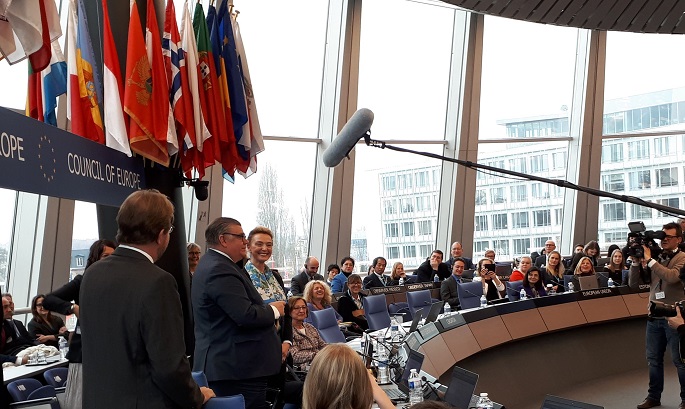With Russian membership as key issue
Finland takes over Council of Europe Presidency
Published : 22 Nov 2018, 01:00
Updated : 22 Nov 2018, 13:24
Finland commenced on Wednesday its six-month presidency of the Council of Europe (CoE).
Observers have noted the most difficult issue during the Finnish presidency concerns the membership of Russia.
Established in 1949, CoE is not related to the European Union. It comprises today 47 countries including non-EU countries like Norway, Switzerland and Russia.
In the wake of the 2014 Crimean crisis, the voting rights of Russian delegates in the Parliamentary Assembly of CoE were suspended. In response, Russia initially restricted and later stopped its payments to the Council.
Addressing the transfer ceremony of the presidency from Croatia to Finland in Strassbourg, France, Finnish Foreign Minister Timo Soini described the Council as "an essential platform for the rules-based multilateral co-operation in Europe".
In his speech, Soini did not touch the issue of Russian membership directly, but said he believes "it is of interest for all countries to remain a part of multilateral cooperation".
He also said that "all member states should fulfill their membership obligations. This includes membership fees."
When CoE Secretary General Thorbjorn Jagland visited Helsinki earlier in November, both Soini and Jagland underlined their hope that Russia will stay in the Council.
Valentina Matviyenko, Speaker of the Russian Federation Council, said in September that Russia is close to pulling out of CoE.
She added though that Moscow is interested in strengthening CoE as "a universal European organization with unique mechanisms, which would ensure a united humanitarian and legal space", according to TASS.
Matviyenko insisted that the CoE Parliamentary Assembly should ensure "equal rights for all the 47 member states."
The published priorities of the Finnish CoE presidency include strengthening the system of human rights and the rule of law in Europe, supporting equality and women's rights, focusing on young people and the prevention of radicalization.
Finland will also raise questions relating to the impact of new technologies on human rights. A conference on artificial intelligence and human rights will be organized in Helsinki on 26-27 February 2019.
The Finnish presidency will terminate with a ministerial conference in Helsinki on 16-17 May, 2019.
Following the CoE presidency, Finland will be the chairman country of the European Union during the latter half of 2019.


